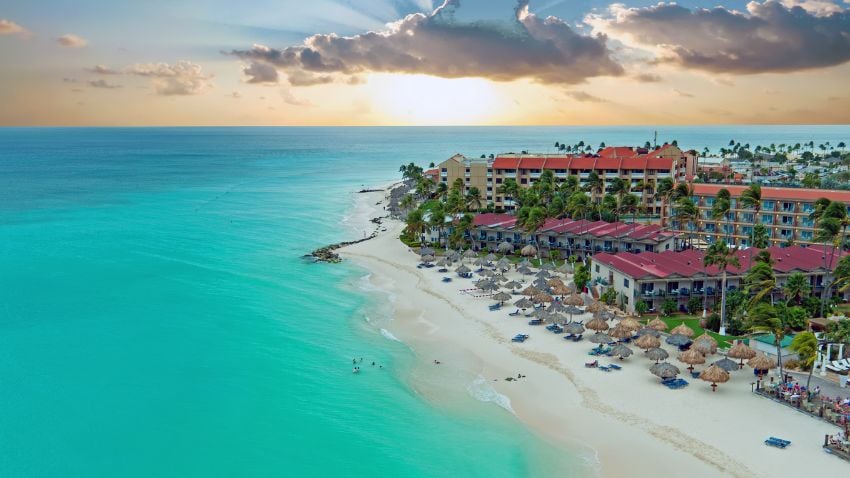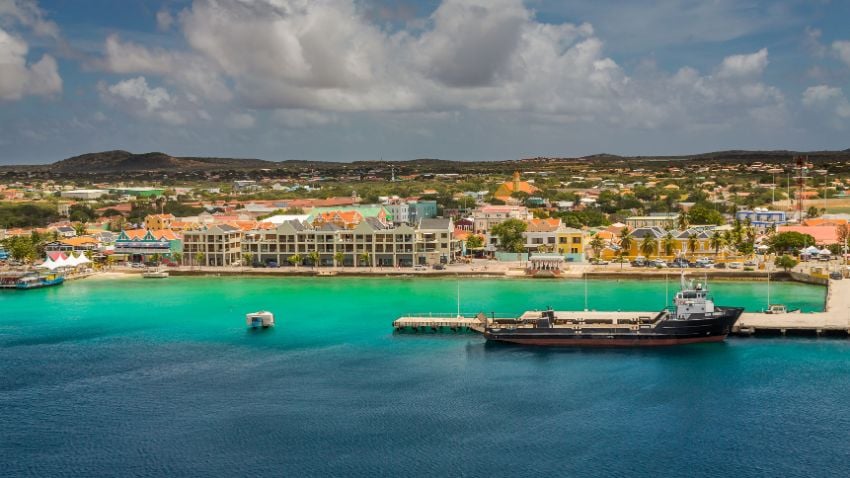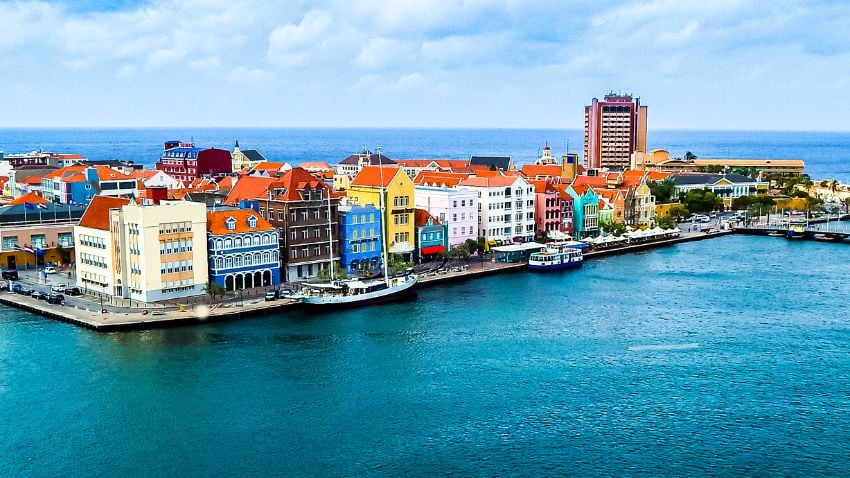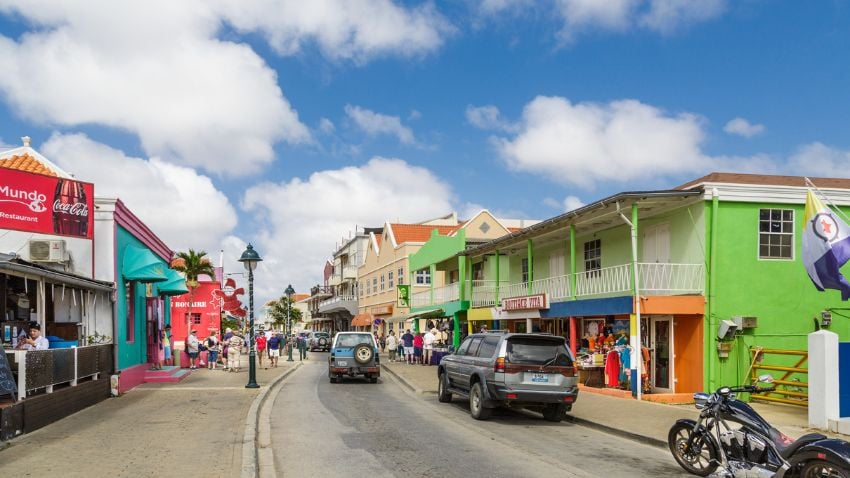How Safe Is Costa Rica?
Costa Rica has become one of the most popular expat and digital nomad destinations in Latin America, known for its natural beauty, relaxed lifestyle,...
%20Can%20Get%20Citizenship%20In%20The%20Netherlands.jpg?width=850&height=478&name=How%20Citizens%20Of%20The%20ABC%20Countries%20(Aruba%2c%20Bonaire%2c%20And%20Cura%C3%A7ao)%20Can%20Get%20Citizenship%20In%20The%20Netherlands.jpg)
5 min read
There are many advantages of being a citizen of the Dutch island nations of Aruba, Bonaire, or Curaçao. If you qualify to apply for the process to obtain citizenship in any of these countries, it could also become your backdoor gateway into Europe. The Netherlands has introduced a distinctive opportunity for people from these territories to acquire citizenship. Although the procedure is not straightforward, it is doable. This article will discuss the steps you can take to help gain Dutch citizenship and commence a new chapter of your life in one of Europe's most vibrant and hospitable nations. If you are interested in learning more, continue reading!

Upon passing the exams, you will participate in a citizenship ceremony, pledging allegiance to the monarch and the Dutch constitution
Put simply, you can become a Dutch citizen through one of these pathways: naturalization, option procedure, and birthright citizenship. Let us discuss them one by one.
If you have lived in the Dutch Caribbean (Aruba, Bonaire, Curaçao and other territories such as Saint Maarten and Saint Eustatius) for a specific period and meet certain requirements, you can apply for Dutch citizenship through naturalization. In this section, we will discuss the naturalization process and the requirements you must fulfill to become a Dutch citizen as an ABC citizen. The requirements are the following:
Having met these requirements, you can start the application procedure for Dutch citizenship by naturalization, which will take around six months but may take longer, depending on your circumstances.
The first step in the application process is to fill out the naturalization application form, which you can find on the website of the Immigration and Naturalization Service (IND) or at the municipality where you are registered. You must inform authorities about your situation, education, work history and language skills.
Once the IND accepts your application, you will be invited to take the Civic Integration Exam that will test your knowledge of the Dutch language, society and culture. Also, you will have to take the Knowledge of Dutch Society Exam that tests your knowledge of the society and political system of the Netherlands.
If you pass these exams, you will be invited to attend a citizenship ceremony, where you will swear allegiance to the Dutch monarch and the Dutch constitution. After this ceremony, you will receive a Certificate of Dutch Citizenship that effectively confirms you are now a Dutch citizen.
Here are the documents you need to provide:

After the ceremony, you will become a Dutch citizen and get your passport
This pathway is meant for individuals who meet certain requirements to obtain Dutch citizenship without going through the conventional naturalization process. The option procedure process is available to individuals who meet the following conditions:
Being 18 years or older;
Being born in the Netherlands or Dutch overseas territories, being a child of a Dutch citizen;
Having lived legally in the Netherlands or Dutch Caribbean territories non-stop for at least five years before applying;
Not having been convicted of any serious crime;
Not having been ordered to leave the Netherlands or Dutch Caribbean territories.
Having met these requirements, you may be eligible to apply for Dutch citizenship through the option procedure. Here are the steps you need to follow:
1. Get the proper documents to prove your Dutch descent:
A valid passport or another travel document;
A residence permit;
A birth certificate;
A certificate of good conduct (“verklaring omtrent het gedrag” in Dutch) from the Dutch Ministry of Justice and Security;
Proof that you have lived in the Netherlands or Dutch Caribbean territories for at least five years.
2. Make an appointment at the Dutch embassy or consulate-general in your country of residence;
3. Bring the documents to the Dutch embassy or consulate general;
4. Sign the option statement in person at the embassy or consulate-general;
5. The embassy or consulate-general also signs your option statement;
6. Pay the option procedure fees;
7. Attend the naturalization ceremony.
After the ceremony, you will obtain your Dutch passport and effectively become a citizen of the Netherlands.

The rules for getting birthright citizenship are complex and depend on ones circumstances
This pathway is ideal if you were born in the Netherlands or if one or both of your parents hold Dutch citizenship at birth. However, the rules for acquiring Dutch citizenship through birthright can be complex since it depends on one’s circumstances.
If you were born in the Netherlands, you are granted citizenship, provided that at least one of your parents held Dutch citizenship or permanent residency at their birth. However, if neither of your parents holds Dutch citizenship or permanent residency, you can acquire Dutch citizenship through naturalization only after legally residing in the Netherlands for five years.
If you were born to a Dutch parent outside the Netherlands, you may also be entitled to Dutch citizenship, but this is subject to specific eligibility requirements based on the circumstances surrounding your birth. The eligibility rules are influenced by the year of your birth, whether the Dutch parent was born in the Netherlands or acquired Dutch citizenship through naturalization, and other relevant factors.
If you were born out of the Netherlands to a Dutch parent, you are automatically a Dutch citizen if your Dutch parent was born in the Netherlands or got Dutch citizenship through naturalization before your birth and you were born after December 31, 1984.
Suppose your Dutch parent was born outside the Netherlands and obtained Dutch citizenship through naturalization before your birth. In that case, you are only eligible for Dutch citizenship if you were born after 1 January 1985 and at least you meet one of the following conditions:
If you were born after 1 January 1985, you may be eligible if your Dutch parent was a Dutch citizen at the time of your birth;
If you were born after 1 January 1985, you may also qualify if your Dutch parent was living in the Netherlands or Dutch Caribbean territories at the time of your birth;
If you were born before 1 January 1985, you may be eligible if your Dutch parent was still a Dutch citizen at the time of your birth.
It does not matter whether you were born in the Netherlands or abroad.
Related article: The Basics Of How To Get A Second Passport Or A Second Residency

Dutch citizenship brings benefits such as access to the EU, quality education and health, a high standard of living for expats
If you are from one of the ABC countries (Aruba, Bonaire, and Curaçao) and interested in acquiring Dutch citizenship, you can enjoy the Netherlands' strong economy, high standard of living, and EU membership. You can take three main routes to Dutch citizenship: naturalization, option procedure, and birthright citizenship.
You can unlock new opportunities and access a vibrant and supportive society by obtaining Dutch citizenship as an ABC citizen. Meeting the eligibility criteria, mastering the Dutch language, and embracing Dutch culture can help you integrate into Dutch society successfully. The benefits of Dutch citizenship, such as access to the EU market, world-class education and healthcare systems, and high quality of life, make it appealing for those seeking to broaden their horizons and enhance their well-being.
If you want the best intel from the expat world, including profitable offshore opportunities, little-known tax-saving strategies, and hard-won insights on immigration, passports, and Plan-B residencies, all delivered to your inbox every single week, then join our daily correspondence, EMS Pulse®. Currently enjoyed by over 84,000 expats and expat-hopefuls worldwide. Fill in the form below to join our newsletter free:

Written by Mikkel Thorup
Mikkel Thorup is the world’s most sought-after expat consultant. He focuses on helping high-net-worth private clients to legally mitigate tax liabilities, obtain a second residency and citizenship, and assemble a portfolio of foreign investments including international real estate, timber plantations, agricultural land and other hard-money tangible assets. Mikkel is the Founder and CEO at Expat Money®, a private consulting firm started in 2017. He hosts the popular weekly podcast, the Expat Money Show, and wrote the definitive #1-Best Selling book Expat Secrets - How To Pay Zero Taxes, Live Overseas And Make Giant Piles Of Money, and his second book: Expats Guide On Moving To Mexico.

Costa Rica has become one of the most popular expat and digital nomad destinations in Latin America, known for its natural beauty, relaxed lifestyle,...

Mexico remains one of Latin America’s most compelling destinations, especially for North Americans. More than a million expats call it home, and tens...

South Korea is far more than K-pop and K-dramas. It is a country known for outstanding food, from bustling street markets to high-end dining, as well...